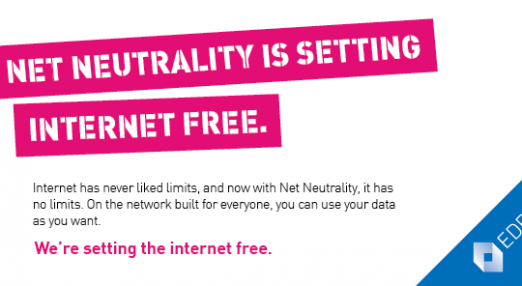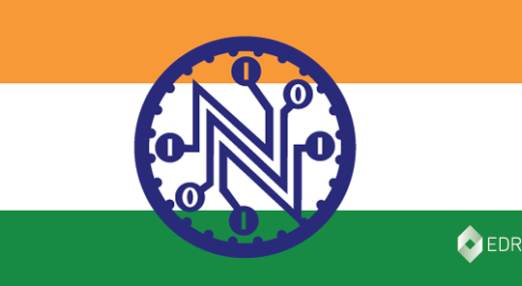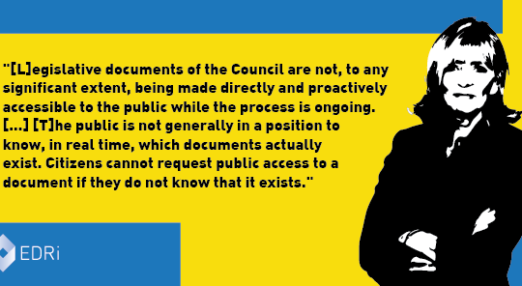EDRi-gram 16.4
Filter by...
-

T-Mobile treats everyone equally unequally
The Dutch national regulatory authority, Authority for Consumers & Markets (ACM), has again decided that the mobile operator T-Mobile does in fact respect European net neutrality rules. EDRi-member Bits of Freedom believes the decision of ACM is short-sighted. On 8 February 2018, the regulatory authority published its decision on our objection to its decision on […]
Read more
-

Don’t make your community Facebook-dependent!
Facebook is to invest tens of millions in “community leaders” – on the condition that the community leader uses the “Facebook family of apps and services”. EDRi member Bits of Freedom argues for reducing the role of Facebook in your community.
Read more
-

India set to have the world’s strongest net-neutrality protections
On 28 November 2017, India’s communications regulator, the Telecom Regulatory Authority of India (TRAI), recommended several net-neutrality protections be inserted into Internet Service Provider (ISP) licences.
Read more
-

Copyright reform: The Bulgarian Presidency strikes back
Article 13 is a key issue in the discussions on the “Proposal for a Directive on Copyright in the Digital Single Market” that have been going on since 2016. It proposes requiring services that store content on the internet for users to “take measures, such as content recognition technologies, aimed at preventing the upload of […]
Read more
-

General monitoring of communications to block “undesirable” content
Increasingly, demands are made that “something be done” about “undesirable” and “harmful” material on the internet: online child abuse images and other criminal pornography, “extremism”, “incitement to violence”, “hate speech”, – and more recently, “fake news”. Organisations representing holders of intellectual property (IP) rights similarly demand that measures be taken to prevent the sharing of […]
Read more
-

European Ombudsman shares EDRi’s concerns on Council transparency
On 13 February 2018, the European Ombudsman Emily O’Reilly published a Recommendation regarding the transparency of the legislative work of the Council of the European Union. Her strategic inquiry, which involved the examination of the Council’s work around the legislative course of the General Data Protection Regulation (GDPR), among other files, showed that the Council’s […]
Read more
